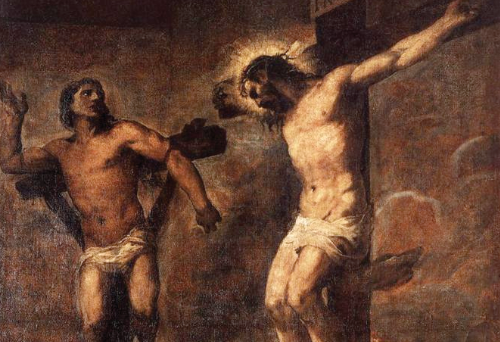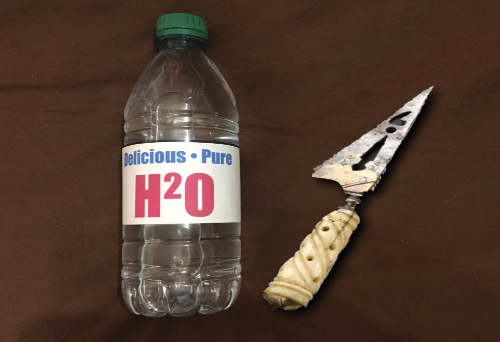I hope we have aptly answered all of the objections to water baptism so far. We have just learned that Ephesians 4:4 is true. There is only one baptism and that one baptism is in water by the Spirit. It’s one baptism with two things happening at the same time, just like Jesus told Nicodemus. One event, two components. It all happens at the same time. Now just when we think we are getting all of this nailed down, we bump into a conversion like this one.
The Fly in the Ointment
Acts 19:1-7
“While Apollos was at Corinth, Paul took the road through the interior and arrived at Ephesus. There he found some disciples and asked them, “Did you receive the Holy Spirit when you believed?”
They answered, “No, we have not even heard that there is a Holy Spirit.”
So Paul asked, “Then what baptism did you receive?”
“John’s baptism,” they replied.
Paul said, “John’s baptism was a baptism of repentance. He told the people to believe in the one coming after him, that is, in Jesus.” On hearing this, they were baptized into the name of the Lord Jesus. When Paul placed his hands on them, the Holy Spirit came on them, and they spoke in tongues and prophesied. There were about twelve men in all.”
Well, this is a huge fly in the ointment of our “One Baptism, Two Components happening at the same time” thingy, isn’t it? And just as I thought we were well on our way to agreement. In this event, the Holy Spirit is clearly received after their physical baptism. What’s up with that?
And how about this one…
Acts 8:12-17
“But when they believed Philip as he preached the good news of the kingdom of God and the name of Jesus Christ, they were baptized, both men and women. Simon himself believed and was baptized. And he followed Philip everywhere, astonished by the great signs and miracles he saw.
When the apostles in Jerusalem heard that Samaria had accepted the word of God, they sent Peter and John to them.
When they arrived, they prayed for them that they might receive the Holy Spirit, because the Holy Spirit had not yet come upon any of them; they had simply been baptized into the name of the Lord Jesus.
Then Peter and John placed their hands on them, and they received the Holy Spirit.”
Ouch, this is really putting a dent in our theory! In this story, people are baptized but once again, they “receive” the Holy Spirit some time later! How can this be?
… As Ricky used to say, “Lucy… you got some ‘splaine to do!”
An Amazing Explanation Using Lemonade
OK, if you have never heard this before, get ready for some major light bulbs to come on! I will never forget the first time I heard this. This explanation is a result of the kind of logical, reasonable Bible study I love hearing and sharing. This is the sort of thing that really fires me up to dig into the scriptures. I hope it inspires you too. Let’s begin with a little illustration. Let me take you back to your childhood.
Click here to read the rest of this post.










